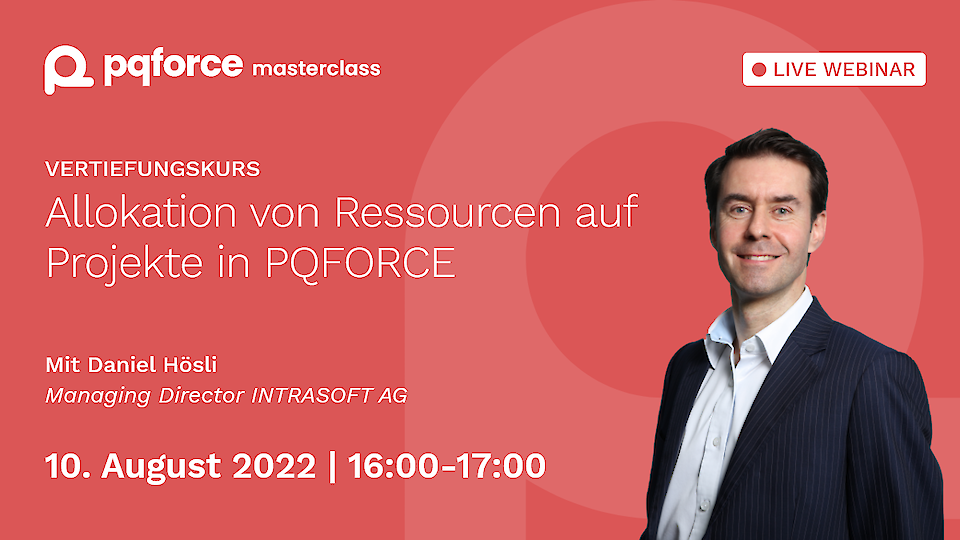Webinar #2 is about the interaction between projects and resources. It is about the interaction between the PPM module and the different resource modules like especially the HRM module with the human resources. This interaction between projects and resources is a key component of PQFORCE. Structuring a project into its phases, activities and work packages (called tasks in PQFORCE for short) using a work breakdown structure and laying them out on the timeline is only half the battle. If the resources required for the execution of the tasks are not available, the plan will remain unchanged. The resources are the elements to be executed or deployed, be it people such as engineers, designers, business analysts, etc., or machines or rooms, which are to be used in the tasks.
In order for the resources to be assigned to the tasks and thus scheduled, various requirements must be met. The suitable resources must first be found. This can be done via the required properties (skills). But the availability of the resource in the corresponding period between the start and end date of the task must also be ensured. It is precisely the availability of the required resources that has a significant influence on the time frame of the project. If the resources required for a task are not available or not available to a sufficient extent, the task must be postponed, and with it possibly a whole chain of dependent subsequent tasks. In every organization there are typically key resources which are only scarcely available, but which are used in many projects. It is precisely these resources that represent bottlenecks across projects and indirectly lead to dependencies between projects.
The effective allocation of a resource to a task is often an interaction between the project manager on the one hand and the resource's supervisor on the other. The project manager searches for and requests a resource from an organizational unit, and the unit manager reviews the request and assigns a specific person. The actual allocation of the resource can take different forms. We distinguish between absolute efforts, which are to be performed by the resource, e.g. in the form of a fixed number of hours, and relative efforts, which refer to the availability of the resource, e.g. taking up 20% of it. Thus, in the first case we speak of effort-driven tasks and in the latter case of time-driven tasks. These two types of tasks show different behavior when a task is extended or shortened.
Another aspect is the project status, which can have an influence on the representation of an allocation. An allocation to a project, which is only in the initialization or an offer position, is treated differently by PQFORCE than one, which belongs to a running project. The utilization of a resource is therefore composed of different, overlapping tasks, which originate from projects in different states. Especially for the purpose of simulating project shifts, this different treatment of projects - depending on their state - is essential.
This webinar will go over all of these different terms and how they are used and applied in PQFORCE.











